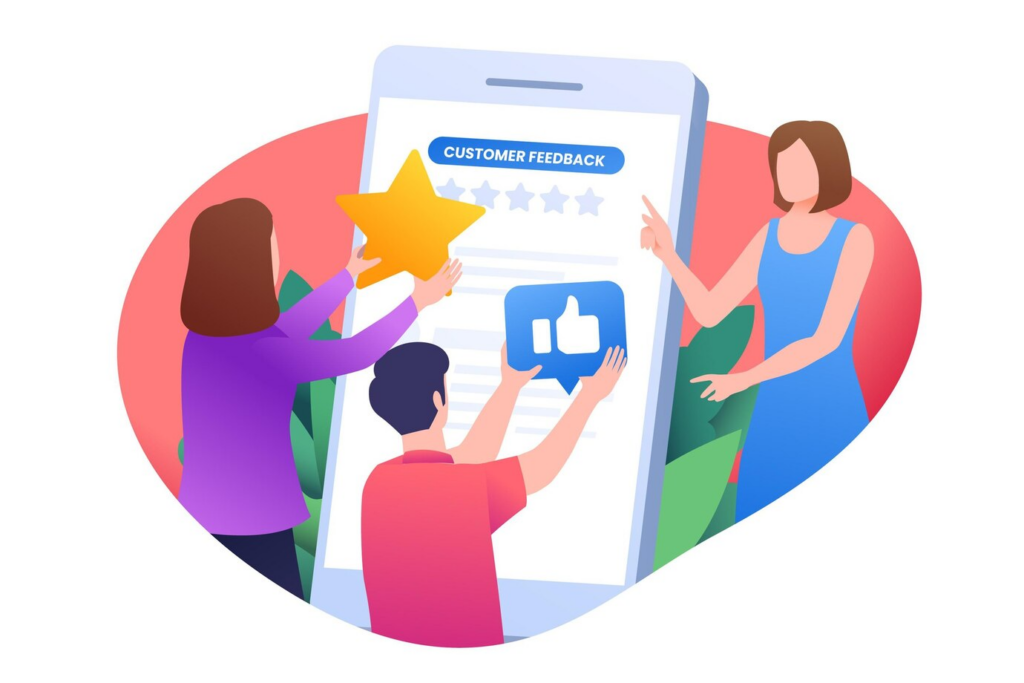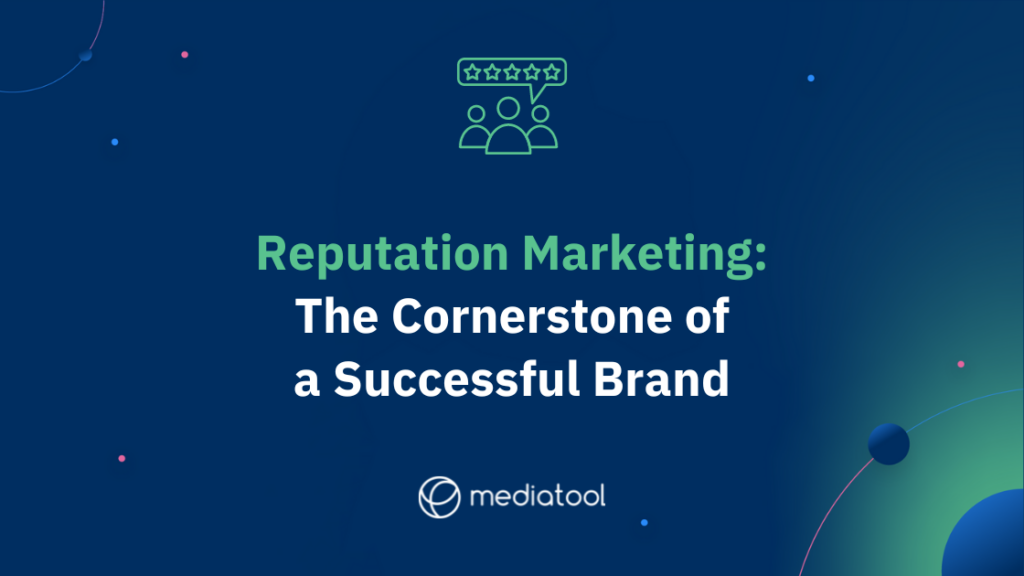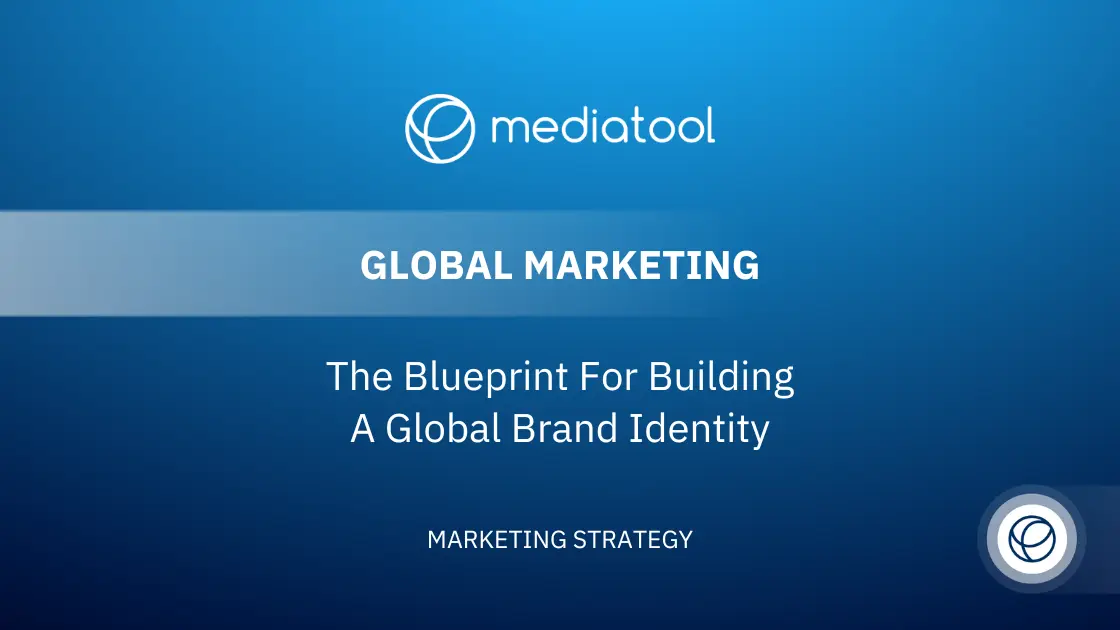In today’s hyper-connected digital landscape, a brand’s reputation is more vulnerable and valuable than ever. A single tweet, review, or social media post can shape public opinion overnight. Enter “Reputation Marketing,” a proactive strategy to cultivate and maintain a positive brand image. This article dives deep into what reputation marketing entails, its significance, and how to effectively leverage it for business success.
What Is Reputation Marketing?
Reputation marketing is a strategic approach that focuses on shaping and promoting a positive image of a brand or company online. In today’s world, where information is readily accessible through search engines and where consumers trust online reviews as much as personal recommendations, the significance of a brand’s reputation cannot be overstated.
Unlike traditional marketing, where companies primarily project their messages, reputation marketing emphasizes what consumers say about your business. It is about leveraging positive reviews and addressing negative feedback to intentionally cultivate a favorable brand’s online presence.

Why Reputation Marketing Matters
In the digital age, every click, share, review, and comment posted online can influence your brand’s image. A positive reputation can attract more customers, boost the company’s bottom line, and enhance brand equity. Conversely, a single negative review, if not addressed, can drive potential customers away.
In local SEO strategies, online reputation can affect how a business appears in search results. In essence, reputation marketing influences buying decisions and shapes a brand’s presence in search engine results, on review sites, and across social media platforms.
What Types of Brand Content Make Up Your Reputation?
Online Reviews: From Google to specialized review websites, what people say about your company can make or break its online reputation. A striking 97% of consumers typically read product ratings and reviews before making a purchase, highlighting the weight these testimonials carry. Positive reviews on these online platforms can attract new customers, while negative ones can deter them.
Social Media Comments: Feedback, comments, and mentions on social media sites like Facebook, Twitter, and Instagram are pivotal. Social media comments, whether positive or negative, significantly shape the brand’s image. For this reason, managing social media accounts diligently is crucial.
Press Releases: How a company communicates its achievements or addresses issues through press releases can significantly impact its reputation. It’s not just about the announcement but also how it’s framed.
User-Generated Content: Testimonials, personal recommendations, and shared experiences from happy customers on online forums and sites can significantly influence prospective customers. User-generated content is evidence of positive experiences and can greatly enhance a brand’s reputation. This practice, often referred to as “testimonial advertising,” reinforces trust through genuine user experiences.
Digital Marketing Materials: These include everything from your company website content posted on social media platforms to Google ads and other marketing materials. Each of these can either enhance or tarnish your brand’s reputation, so it’s essential to ensure consistency and quality across the board.
How Does Reputation Marketing Differ From Reputation Management?
While both terms sound similar and are often used interchangeably, there is a distinct difference. Reputation management primarily focuses on managing a brand’s or company’s reputation, especially when things go awry. This involves handling negative reviews, addressing bad press, and taking corrective actions on negative content.
On the other hand, reputation marketing differs as it emphasizes proactively promoting and amplifying positive brand content. It’s about creating a favorable image in the eyes of potential customers and then leveraging that positive image for broader marketing efforts.
Examples of Reputation Marketing
Small Businesses: A cafe in a town may encourage its happy customers to leave positive reviews on online review sites. This brings in more customers from the locality and boosts the cafe’s business reputation.
Tech Industry: A startup may actively showcase positive user-generated content and testimonials on its social media accounts, amplifying positive feedback for prospective customers and stakeholders.
Collaborative Marketing: Businesses may partner with influencers or industry leaders to promote positive product or service experiences, leveraging the influencer’s follower base and reputation.
Benefits of Reputation Marketing
Enhanced Brand Equity: With a good reputation, the perceived value of a brand surges, increasing brand equity. A positive reputation boosts customers’ trust and willingness to invest in the brand.
Increased Customer Trust: It’s undeniable—consumers trust online reviews. BrightLocal’s consumer survey shows that 49% of consumers trust reviews as much as personal recommendations from friends and family members. Research indicates that these online sentiments hold as much weight as personal recommendations from family or friends.
Improved Search Engine Optimization (SEO): A positive online reputation can significantly impact search engine results. When a business receives 10 or more specific product reviews, there is often a noticeable enhancement in search traffic and keyword positioning, leading to an uptick of 15-20% in search traffic. More positive reviews and mentions improve local SEO, bolstering a brand’s online presence.
How to Implement a Reputation Marketing Strategy
Implementing a proactive reputation marketing strategy involves more than just monitoring online chatter; it requires a comprehensive plan:

Audit Content: Ensure that all marketing materials, from your website to social media posts and even mentions under your company name in online forums, reflect your desired brand image.
Encourage Positive Feedback: Create initiatives or loyalty programs that motivate satisfied customers to share their positive experiences, leave reviews, and recommend your brand on social media.
Utilize Tools: Employ reputation marketing software and tools to continually monitor feedback, manage your brand’s online presence, and intentionally cultivate a positive reputation enterprise-wide.
Monitor and Manage Brand Reputation
Stay Active on Review Sites: Online reviews are a goldmine of customer feedback. Ensure you’re actively monitoring these platforms, thanking customers for positive reviews, and addressing concerns highlighted in negative feedback.
Engage on Social Media: Social media comments can sway public opinion. Dedicate resources to monitor mentions and comments related to your business on social media platforms and engage in conversations positively.
Implement SEO Best Practices: Regularly update your business listings, employ tools specifically designed for search engine optimization, and emphasize amplifying positive content to improve your standing in search results.
Reputation Marketing: Keys to Success
Have a Crisis Communications Plan: Every business leader knows crises can strike anytime. When negative content or bad press emerges, it is crucial to be equipped with a strategy to address it swiftly.
Build Relationships: Personal recommendations stem from trust. Hence, building and maintaining relationships with customers is paramount. This not only encourages positive feedback but also helps prevent negative feedback.
Stay Consistent: The brand’s image results from various marketing efforts. Ensuring that all these efforts, whether social media posts or digital marketing campaigns, align with the brand’s desired image is essential.
Common Mistakes Made In Reputation Marketing
Ignoring Negative Feedback: Every business will face negative reviews at some point. However, the error lies in overlooking these critiques. Addressing them head-on, understanding the root cause, and taking corrective actions not only repairs the immediate issue but also signals potential customers that the business cares about its clientele.
Being Inauthentic: In today’s world, consumers have an uncanny ability to detect inauthenticity. Planting fake reviews, offering insincere responses, or portraying a facade can harm a company’s reputation. Maintaining transparency and honesty is paramount.
Lack of Monitoring: With the plethora of social media platforms, review websites, and online forums, it’s easy to overlook mentions about your business. However, failing to monitor these channels can lead to missed opportunities to amplify positive mentions or address and mitigate negative content.
Measuring the Impact of Online Reviews
Online reviews play a crucial role in shaping a business’s reputation. Positive reviews can boost a company’s image, increase customer trust, and drive sales. Negative reviews, however, can tarnish the brand’s image and deter prospective customers.
Another compelling insight is that nearly half of consumers (49%), require a business to have a minimum four-star rating before they consider using its services. Utilizing tools to analyze online reviews’ frequency, sentiment, and impact can provide insights into your reputation marketing efforts and help refine strategies.
How to Create a Reputation Marketing Strategy for Your Business
Know Your Audience: Dive deep to understand your target customers – their preferences, behaviors, and online habitats. This knowledge informs where and how to direct your reputation marketing efforts.
Set Clear Objectives: Clear, measurable goals drive the strategy. Whether it’s elevating the brand’s image on search results, amassing more positive reviews, or mitigating negative feedback, having a clear vision is essential.
Resource Allocation: Reputation marketing isn’t a one-time task. Allocate dedicated resources in terms of tools and personnel to monitor, manage, and intentionally cultivate a positive reputation.
Monitor and Respond to Reviews
Being proactive in monitoring and responding to reviews, whether they’re positive or negative, showcases a brand’s commitment to customer satisfaction. It’s essential to address issues, thank customers for positive feedback, and make amends when necessary.
Encourage Others to Promote Your Brand
Leverage satisfied customers, influencers, and partners to promote your brand through personal recommendations or positive social media comments. This not only amplifies positive brand content but also helps to attract new customers.
Word of Mouth: Satisfied customers are often a brand’s best promoters. Encourage them to share their experiences through online reviews, social media posts, or personal recommendations. Notably, 28% of individuals believe that word-of-mouth enhances their connection to a brand. This only emphasizes the power of personal recommendations and the profound effect they can have on a brand’s reputation.
Collaborate and Amplify: Partner with influencers and stakeholders who align with your brand values. Their positive social media comments or endorsements can amplify the brand’s reach, driving more customers and enhancing brand stand in the marketplace.
How to Implement a Reputation Marketing Strategy
Audit Content
It’s essential for businesses to regularly review all marketing materials posted online under the company name. This includes routinely checking the brand’s online presence across review websites, social media accounts, and business listings. Ensuring that brand assets and the company’s reputation are displayed positively is crucial for a company’s online reputation.
Monitor and Manage Brand Reputation
Beyond checking social media comments, the modern business leader must utilize advanced reputation management tools. These tools allow companies to track mentions, reviews, and other user-generated content, helping actively manage their business reputation. These insights help refine the reputation marketing strategy, ensuring a positive reputation enterprise-wide.
Encourage Positive Reviews

Customers trust online reviews, often viewing them as personal recommendations. To enhance their reputation marketing efforts, businesses should motivate satisfied customers to share their positive experiences on online forums, review websites, and social media sites. This not only boosts the company’s reputation but also attracts prospective customers.
Engage with your Audience
Building relationships with customers is fundamental. Genuine responses to positive and negative feedback showcase the brand’s commitment to its clientele. Companies should respond to positive feedback and take actionable steps when faced with negative feedback.
Prevent Negative Feedback
While it’s true that no business can please every customer, there are strategies to mitigate negative reviews:
Offer Excellent Customer Service: Many negative reviews stem from poor service. By prioritizing customer satisfaction and offering top-notch service, businesses can prevent many potential negative reviews.
Ask for Feedback: By regularly soliciting customer feedback, businesses can preemptively identify and address issues before they escalate into negative reviews on social media or review platforms.
Optimize Your Brand Presence Online
Your brand’s online reputation is shaped by more than just reviews. Ensuring a consistent, positive image across all platforms, from social media accounts to search engine results, is vital. Employ search engine optimization techniques to ensure your business listings are up-to-date and your company appears positively in search results. Additionally, amplifying positive brand content can further enhance your brand stance in the digital marketing landscape.
Reputation Marketing Software Improves Perceptions
In an age where consumers trust online reviews as much as personal recommendations, leveraging tools that track mentions and reviews becomes pivotal. Reputation marketing software doesn’t just track; it can provide invaluable insights, automate responses based on predetermined criteria, and help drive a positive reputation enterprise-wide. This technology is essential in modern reputation marketing efforts, ensuring that potential customers and loyal patrons view the business in the best possible light.
Conclusion
In today’s digital landscape, reputation marketing is a pivotal cornerstone for businesses seeking to amplify their brand’s image. The weight consumers place on online reviews mirrors personal recommendations, emphasizing the dire need for brands to foster a positive reputation. Businesses must deftly maneuver between encouraging positive feedback and addressing negative feedback, ensuring a cohesive and favorable online presence.
Leveraging modern tools, being authentic, and employing a proactive reputation marketing strategy is essential for brands to thrive. With the evolution of consumer behavior in the digital age, businesses that prioritize and master reputation marketing will undoubtedly reap substantial benefits, fostering trust and loyalty among existing and potential customers.





